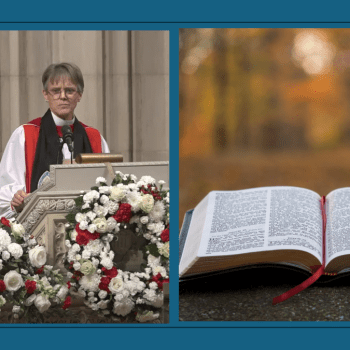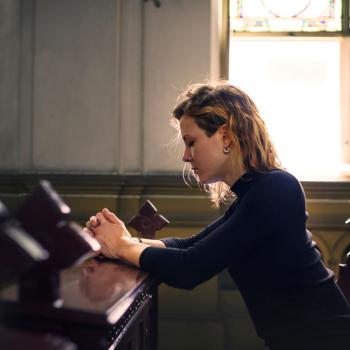“Come to me all you who are weary and heavy-laden and I will give you rest,” (Matthew 11:28). This is one of my favorite sentences spoken by Jesus. I often feel weary and heavy laden, and the idea of a rest given to me by none other than Jesus himself just makes me breathe a deep sigh of relief. But then I read the next line and I realize why it is so difficult for me to receive this gift from Jesus: “Take my yoke upon you, and learn from me…” (Matthew 11:29).
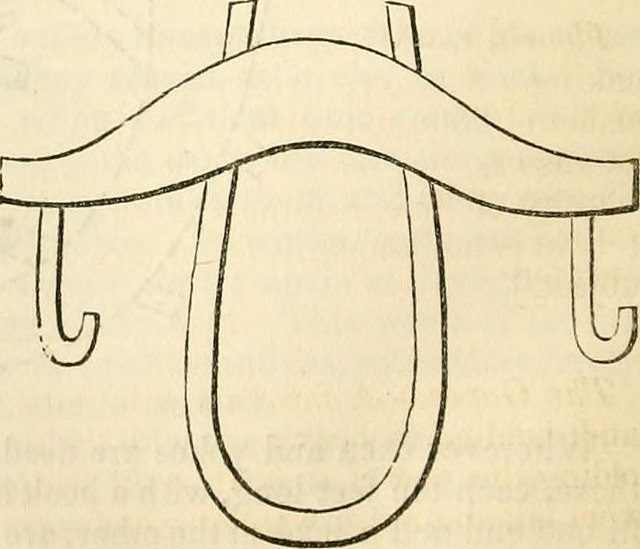
Why is Jesus giving me yet one more yoke, one more burden?
Or is Matthew 11:25 – 30 trying to teach us something different about how to handle our burdens? Perhaps I need to learn a bit more about this yoke.
A yoke is a crossbar with two U-shaped pieces that encircle the necks of a pair of oxen or other draft animals working together.
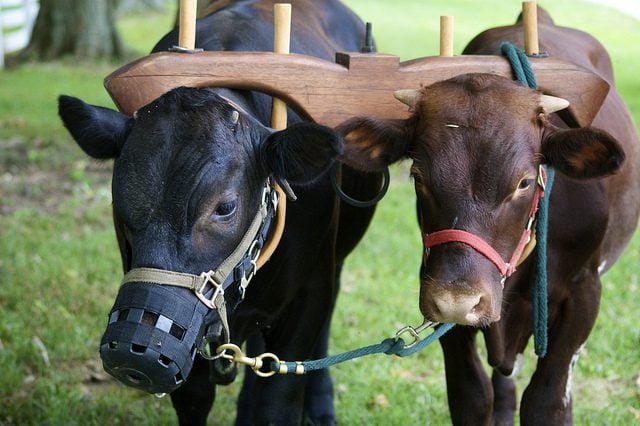
Or it can one piece fitted to a single person carrying it across their shoulders with equal loads on each end, like two buckets of water.
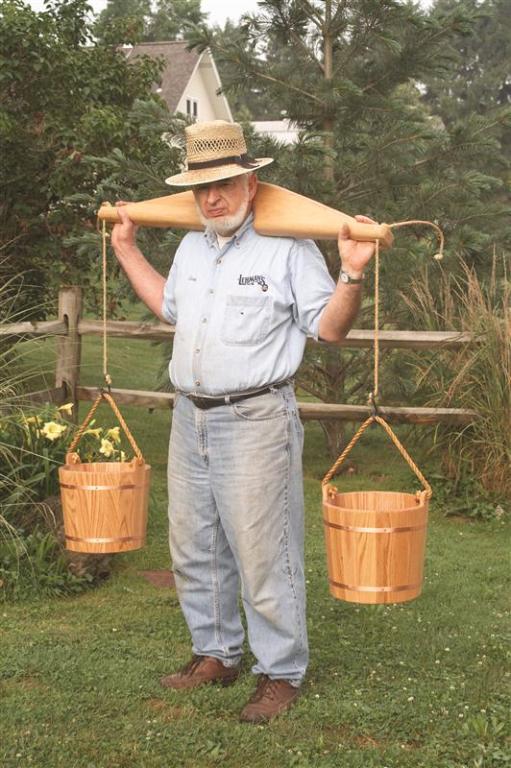
That’s the kind of yoke I wear most of the time. I’m so busy, and I’m carrying such a heavy load, I can’t stop to receive this other yoke from Jesus. There’s a song by Sandra Boynton which my kids listen to called “BusyBusyBusy” which has been a theme song of my life:
We’re very very busy
We’re very very busy and we’ve got a lot to do
And we haven’t got a minute to explain it all to you
For on Sunday Monday Tuesday there are people we must see
And on Wednesday Thursday Friday we’re as busy as can be
With our most important meetings and our most important calls
And we have to do so many things and post them on the walls…
We have to hurry far away, and then we hurry near
And we have to hurry everywhere, and be both there and here
And we have to send out messages by e-mail, phone, and fax
And we’re talking every minute, and we really can’t relax
And we think there is a reason to be running neck-and-neck
And it must be quite important, but we don’t have time to check.
Yep, that is my life.
We get obsessed with working and being busy. It’s like an addiction. The phrase, “I’m so busy,” is like a mantra in our society. Sometimes it’s a badge of honor indicating one’s industriousness, and level of success and importance. For other’s it’s like the plea that goes unheeded. We feel trapped by all that we feel is required of us, all that we have signed up for and don’t know how to say no to.
“Honor the Sabbath and keep it holy.”
When I teach Confirmation students about this commandment, they learn that sabbath means “a period of sacred rest.” I designed a “Sabbath survey” that provides a snapshot of their own level of stress and restedness. Some said they get only 7-9 hours of sleep. But children between the ages of 11-13 need between 9.5 – 11 hours of sleep. It is no wonder, then, that some of them fall asleep in class, and others felt they needed caffeine to get through the day.
A number of factors are contributing to this sleep-deprived state in our children. Some have to do with the choices they or their parents make. For example, almost every child has some kind of screen in their room – a t.v., laptop, video game, or phone. Add that to 2-3 hours of sports, music lessons, or other extracurricular activities, followed by several hours of homework. That explain their late-night bedtimes (anywhere from 10 – midnight).
Part of the problem also has to do with a lack of awareness of just how tired and stressed they are. When asked if they thought they were too busy, only a few said yes. Young people are so used to life at a frenetic pace that they think it’s normal. They have nothing to compare it to. They can’t even remember a time when life was a bit slower, less rushed, and going at an easier pace, because they’ve never experienced it.
But when asked, they were able to identify the signs indicating they haven’t gotten enough rest.
They know what happens to their mood, their bodies, and their work when they don’t honor the sabbath. They get grouchy, moody, lose their sense of humor, make mistakes in their school work, feel depressed, and are more likely to get sick. We as adults have our own warning signs – high blood pressure, headaches, arguments with people, impatience, inability to concentrate, depression, and even falling asleep at the wheel when driving, which can sometimes cause a fatal accident. So, then, failing to honor the sabbath can actually lead to death.
The theologian Thomas Merton called this kind of busy-ness a form of violence.
The frenzied pace of our culture kills inner peace. And when we feel that rushed and desperate, it creates suffering for others. The stress of the “workaholic” assaults the people around them.
Think for a minute of the most stressed out person you know. How do they make you feel? Do you like to be around them?
I asked my kids once if they thought I was too busy.
There was no hesitancy in their answer: yes!
So I have to ask myself – is this what I want to give to the world? Do I really want to contribute to the stress and emotional violence of this world by continuing this lifestyle that I think I’m trapped in? Or do I have some choices to make that I wasn’t aware of before?
So I decided to stop and listen again to these words of Jesus – “Come to me all you who are weary and heavy-laden and I will give you rest. Take my yoke upon you, and learn of me; for I am meek and lowly in heart: and you shall find rest unto your souls. For my yoke is easy and my burden is light.”
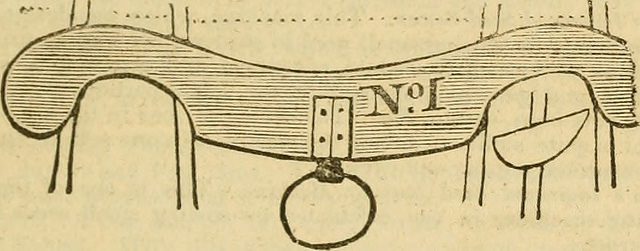
Then it hit me – Jesus isn’t asking me to take on yet one more burden.
He’s inviting me to take off the single yoke I have put on my shoulders, place it on the ground, and step in beside him on a two-harness yoke. The full verse reads: “Take my yoke upon you, and learn from me, for I am meek and lowly in heart: and you shall find rest unto your souls. For my yoke is easy and my burden is light,” (Matthew 11:29-30).
Think again of the yoke. I said before that there are two types. One is for a single person that lays across their neck. That kind of burden is the most difficult because you have to carry it all by yourself. But the other kind of yoke is when two animals are connected together, each one bearing the burden. I realize that what Jesus is asking me is not to take up yet one more burden, but to allow him to become yoked to me, so that he can walk beside me, accompany me with his presence and bear my burdens with me.
And I realize, too, that Jesus has been doing this for me all along in the form of people who have accompanied me in a non-stressful, anxiety-reducing way, modeling for me what it means to live a life that is at peace, honoring the Sabbath.
Think for a minute – who is the least stressed person you know?
I’m not talking about someone who’s just a slacker and lazy. I’m talking about someone who maintains a healthy balance, and walks at a breathable pace. When you’re around them, it feels like you’ve just walked in from a busy city street into a quiet sanctuary. Who is that person for you? How do they make you feel?
Now – what type of person are you? Are you a non-anxious presence for your spouse, children, co-workers, friends, fellow church members? Or are you just one more person who contributes to the overall frenzy of our world?
What practices can help you honor the sabbath and relieve stress?
How can you be more like the kind of person who creates a small sanctuary of peace around them wherever they go, whatever they do, and whomever they’re with? I asked the students these questions, and here were some of their suggestions:
- listen to music
- read
- dance
- write/journal
- take a bath/shower
- play with friends
- participate in a sport
- play a board game
- watch or listen to comedy
- sleep
- go to church
- meditate
- pray
I also suggested to them that you can “prune” your activities, both for yourself and your family. Think of one activity you could give up for a season. Learn to say “no,” politely, but firmly when asked to take on one more thing. Learn to say “yes” to time off. And learn to define and protect your Sabbath.
Think of these Sabbath practices as times of “dormancy.”
Setting aside times of dormancy is like the farmer allowing an overworked field to lie fallow for a season. It allows nutrients to return to the soil, permits new growth to spring up, and shows respect for the land. Deciduous trees also have times of dormancy when they temporarily cease producing chlorophyll, drop their leaves, and rest. There is a time to be productive, and there is a time to cease from being productive (in the spirit of Ecclesiastes Chapter 3).
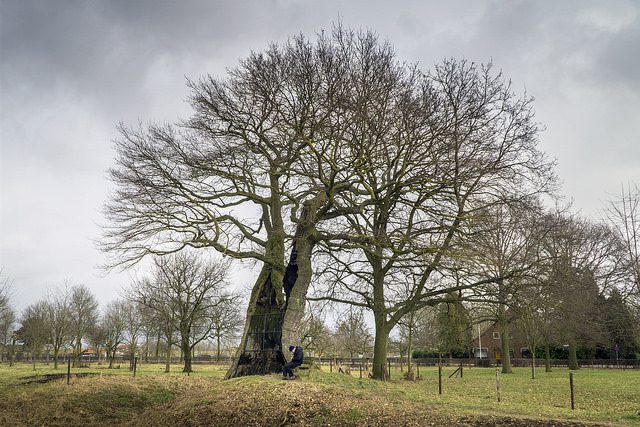
Honoring the Sabbath is an act of faith because it shows that we trust God.
We can let go enough to allow God to work in and through us, and sometimes in spite of us! Jesus beckons us to put down our burdens and step in beside him. We can begin to learn a new way of working, living, and relating to others that releases stress and contributes to the health and well-being of those around us. Healing for our bodies is contingent on our giving our bodies rest. This is healthy for our hearts, minds, and relationships as well.
But it will be difficult for those of us who are so attached to our single yokes. So I invite you to join me in this prayer:
Jesus, we are stopping right now to listen to your words to us, your invitation, your offering of grace in the form of rest. We are putting down our single yoke, lifting it off our shoulders, placing it on the ground, and stepping into the yoke beside you. Oh, that feels so much better! It is lighter, easier. Teach us, Jesus, so that we may learn from you how to rest. Amen.
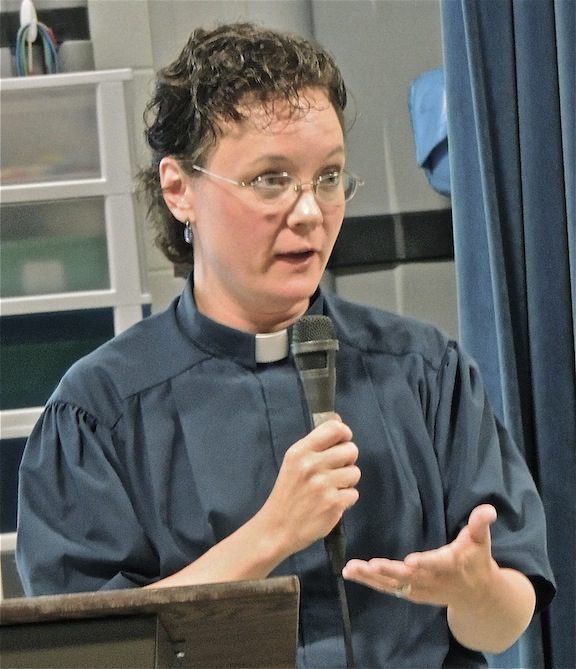
Leah D. Schade is the Assistant Professor of Preaching and Worship at Lexington Theological Seminary (Kentucky) and author of the book Creation-Crisis Preaching: Ecology, Theology, and the Pulpit (Chalice Press, 2015).
Leah will be presenting at the Wild Goose Festival in Hot Spring, NC, July 14 and 15! Her session info is available here: http://wildgoosefestival.org/sessions17-24/. Enter the special code BEMYGUEST for a 25% discount on tickets!
You can follow Leah on Twitter at @LeahSchade, and on Facebook at https://www.facebook.com/LeahDSchade/.
Photo credits:
#1 (single yoke): Image from page 367 of “The Plough, the loom, and the anvil” (1848), flickr.com. flickr.com. Public domain.
#2 (yoked oxen): “Yoke of oxen” by Jean, flickr.com. Some rights reserved. https://www.flickr.com/photos/7326810@N08/
#3 (person with yoke): Shoulder yoke: https://www.lehmans.com/product/shoulder-yoke/lawncare
#4 (double yoke): Image from page 340 of “The complete farmer and rural economist;” (1839). flicker.com. Public domain.
#5 (tree in winter): Public domain. https://www.flickr.com/photos/youngo/





